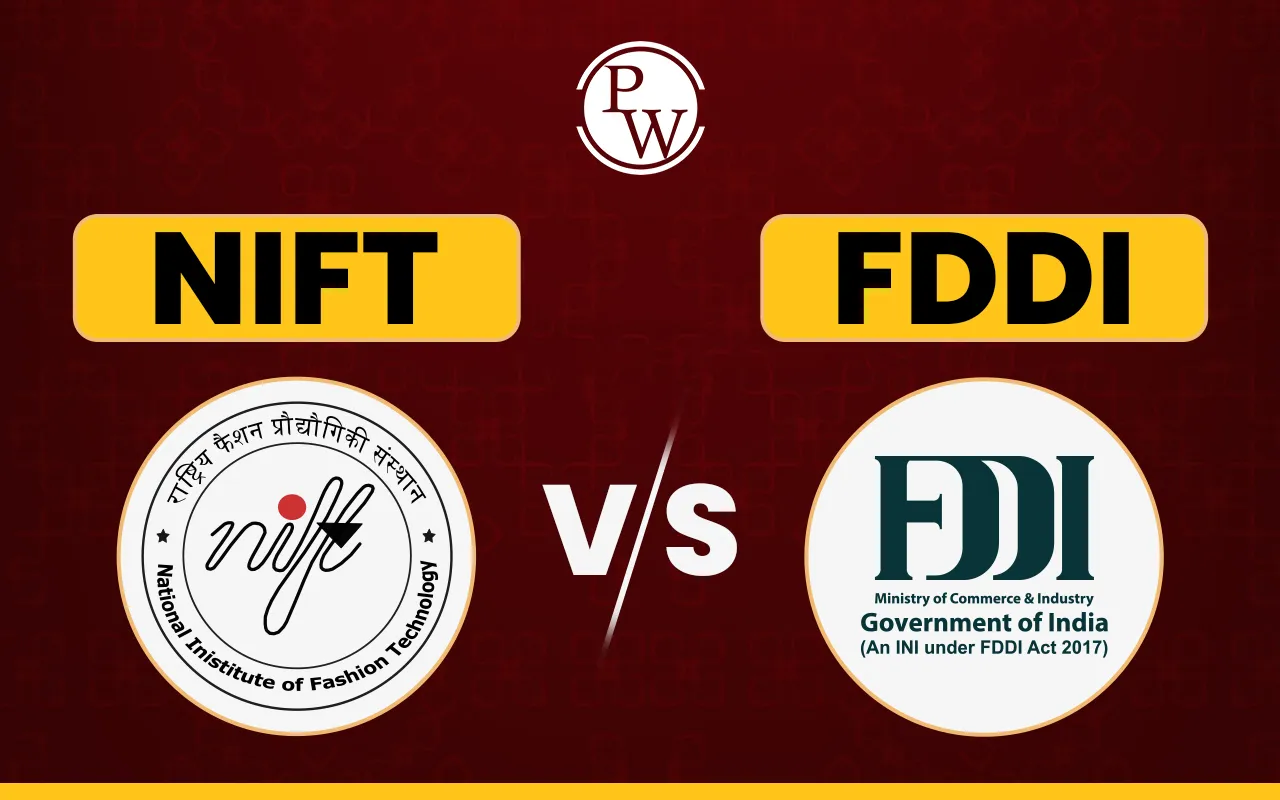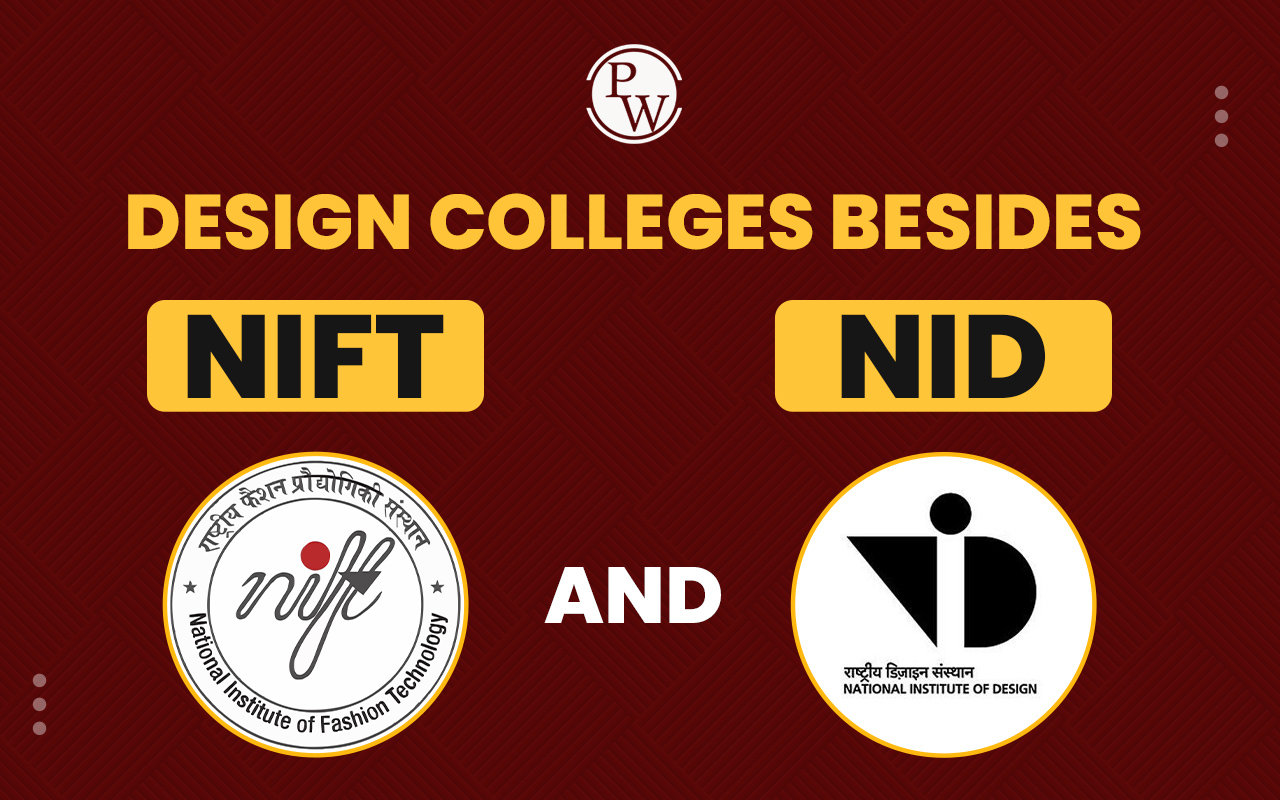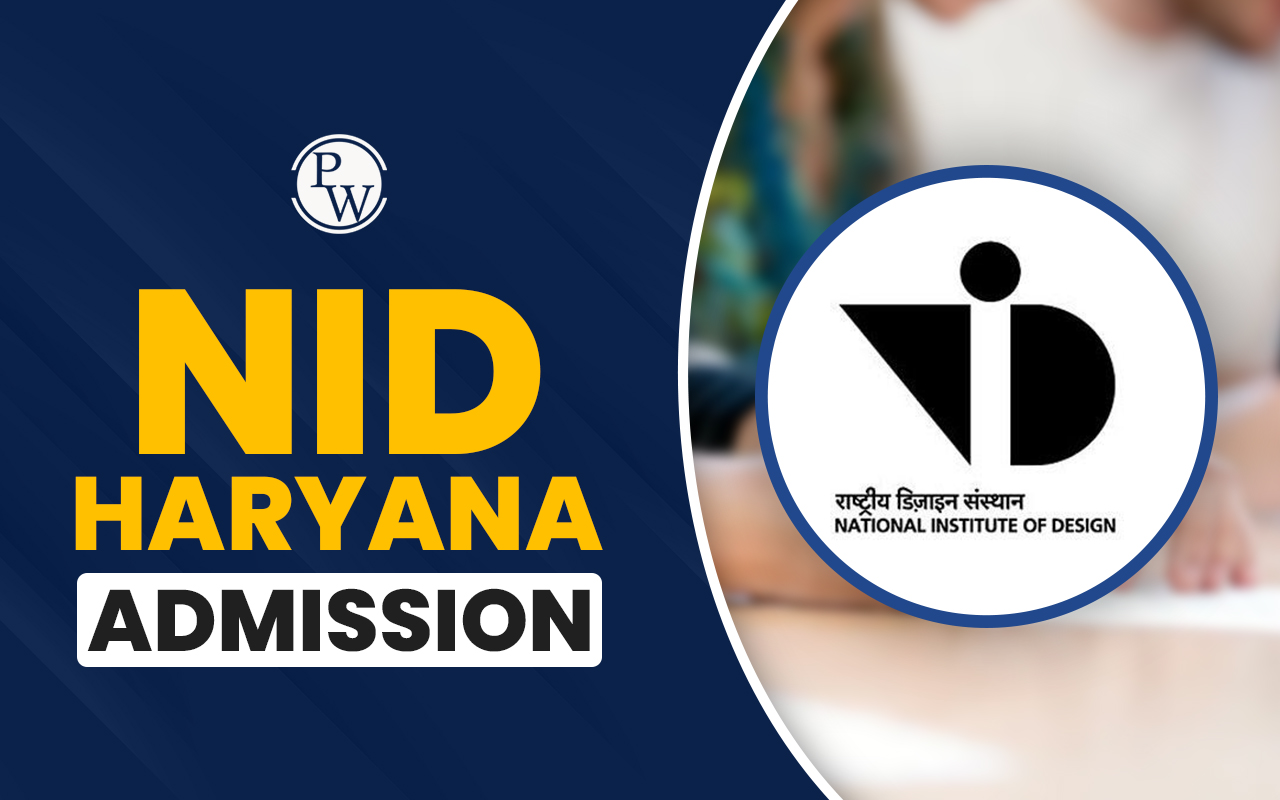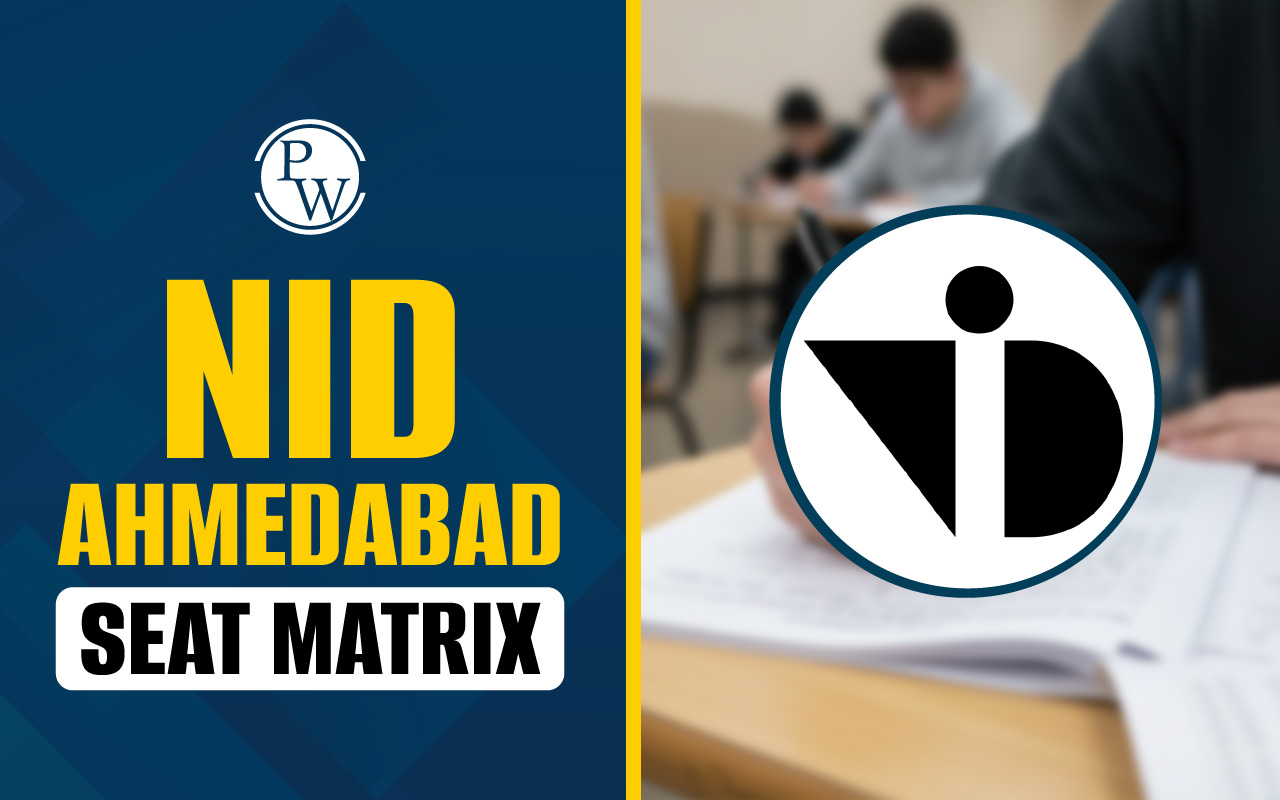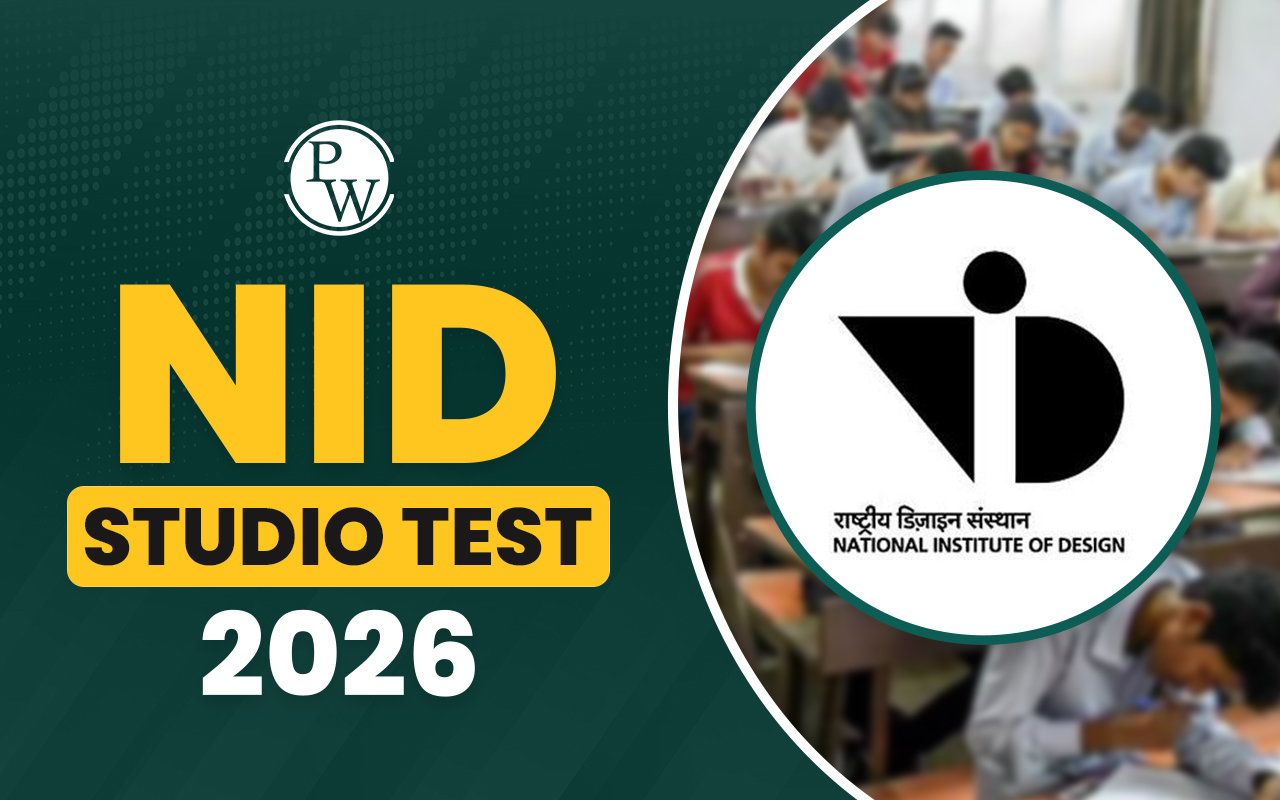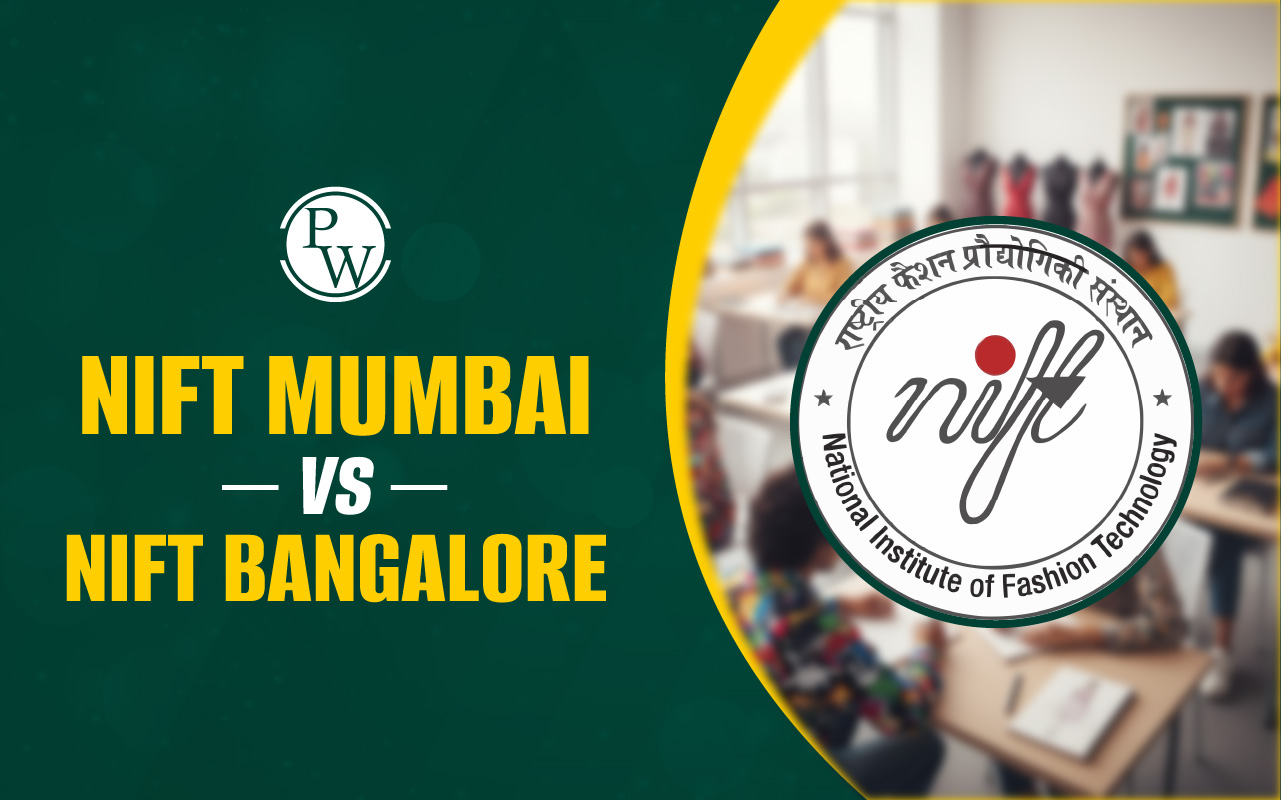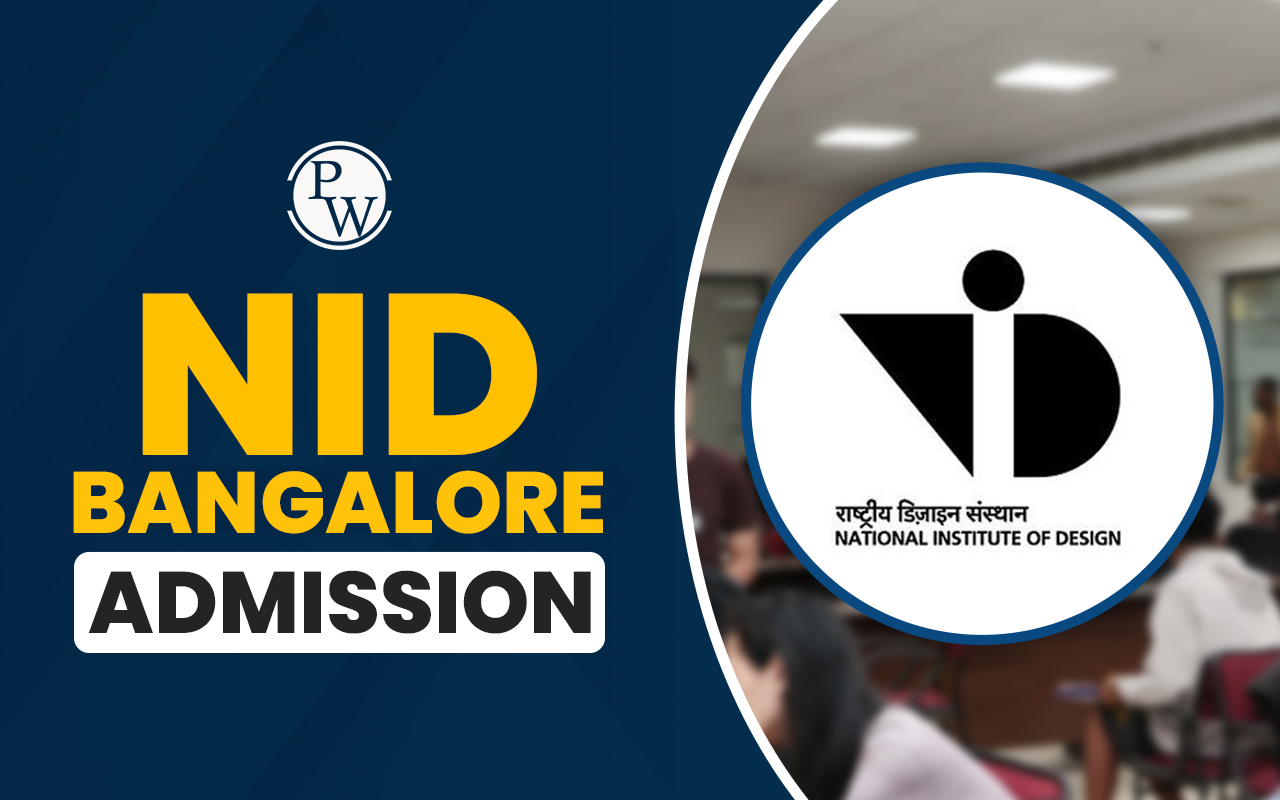
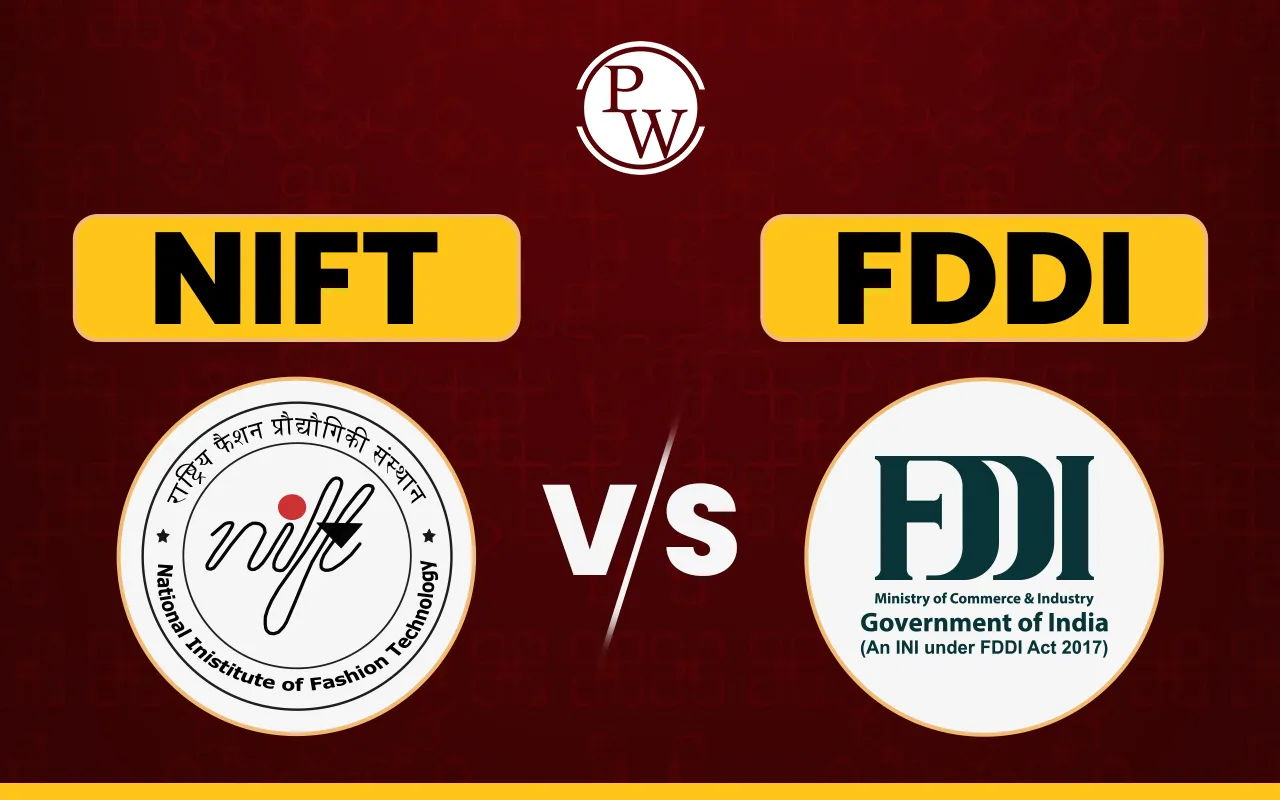
NIFT vs FDDI: National Institute of Design Technology (NIFT) vs Footwear Design and Development Institute (FDDI) are the two most prominent institutes in the list of design colleges in India. Though both focus on design education, they differ in terms of their curriculum, career prospects, and exam patterns. While NIFT covers fields such as fashion design, textile design, fashion communication, and fashion technology, FDDI offers specialized education in footwear design, leather goods, fashion accessories, and retail management.
NIFT vs FDDI Overview
FDDI (Footwear Design and Development Institute) is a premier institution in India that focuses on providing education and training in footwear, leather goods, and fashion accessories. It offers undergraduate, postgraduate, and diploma programs in fields such as footwear design, leather products, fashion accessories, retail management, and leather technology. NIFT (National Institute of Fashion Technology) was established in 1986 and offers UG, PG, and diploma programs in various domains such as fashion design, textile design, fashion technology, fashion communication, and apparel production. It is a leading educational institution in India that focuses on fashion design, technology, and management. The following table compares the important aspects of NIFT vs FDDI.| Parameters | NIFT | FDDI |
| Exam Name | National Institute of Design | Footwear Design and Development Institute |
| Entrance Exam | NIFT Entrance Exam | FDDI AIST |
| Campuses | New Delhi, Chennai, Mumbai, Kolkata, Gandhinagar, Patna, Kangra, Jodhpur, Bengaluru, Hyderabad, Bhopal, Bhubaneshwar, Kannur, Shillong, Panchkula, Srinagar, Raebareli | Noida, Fursatganj (Raebareli), Chandigarh, Guna, Chennai, Ankleshwar, Patna, Hyderabad, Kolkata, Rohtak, Jodhpur, and Chhindwara |
| Specializations Offered | Fashion Design, Textile Design, Leather Design, Accessory Design, Knitwear Design, Fashion Communication, Bachelor in Fashion Technology | Footwear Design and Production, Leather, Fashion Design, Product and Lifestyle Design |
NIFT or FDDI: Which is Better?
Choosing between NIFT and FDDI depends on the candidate's career interests and specialisation goals. If candidates are more interested in fashion design, textile design, fashion communication, and fashion technology, NIFT offers various and well-established programs with global recognition. However, if candidates are interested in footwear design, leather goods, or retail and product management, then FDDI provides particular and industry-specific training. While NIFT has a wider alumni network and industry outreach, FDDI offers strong placement in the footwear and leather industry. Candidates' choices should match their passion and career aspirations.
FDDI Course
FDDI (Footwear Design and Development Institute) offers specialised courses in footwear design, leather goods, fashion retail, and product design. Its undergraduate courses include BDes in Footwear Design, Fashion Design, and Product & Lifestyle Design, which focus on practical and job-related training. At the postgraduate level, it provides MDes in related fields, focusing on advanced design and management skills. FDDI’s curriculum includes creativity, technology, and business knowledge. The institute also offers diploma programs for skill development and faster career entry. With advanced labs and industry exposure, FDDI provides students with the skills needed for the global fashion and footwear markets.
NIFT vs FDDI Courses Offered
Both NIFT and FDDI offer undergraduate, postgraduate, and diploma programs in the field of fashion. Candidates can opt from various specializations provided by these institutes. NIFT also offers research opportunities in the field of fashion for candidates who are interested in pursuing PhD. The following table highlights the various courses and specializations offered at NIFT vs FDDI.| Courses Offered | NIFT | FDDI |
| UG |
|
|
| PG |
|
|
NIFT vs FDDI Eligibility Criteria
Candidates appearing for the NIFT and FDDI entrance exams have to meet the prescribed eligibility criteria as stated by the exam authorities. The eligibility criteria ensure that individuals meet the basic academic, age, and qualification requirements needed to succeed in a particular course or program. The eligibility criteria for NIFT vs FDDI is given separately mentioned below.NIFT Eligibility Criteria
- Candidates appearing for the NIFT entrance exam must be less than 24 years of age as on 1st August of the admission year. For the reserved categories including SC/ST/PwD, the upper age limit is relaxed by 5 years.
- For B.Des admission through NIFT, candidates must have passed their class 12th or equivalent examination from a recognized Central Board/State Board of Secondary Examination, like the Central Board of Secondary Education/State Board New Delhi/Council for Indian School Certificate Examination, New Delhi, etc, OR,
- A passing grade in the Senior Secondary School Examination conducted by the National Open School with atleast five subjects, OR,
- After Secondary Examination/10th Standard, a 3-4 year Diploma Degree recognized by AICTE or a State Board of Technical Education.
- Any Public School/Board/University Examination in India or in foreign countries recognized by the Association of Indian Universities as equivalent to the 12th system, OR,
- General Certificate Education (GCE) Examination (London/Sri Lanka/Cambridge) at the Advanced (A) level/International Baccalaureate (IB).
FDDI Eligibility Criteria
- Candidates have to be 25 years of age as on 1st July 2025 to appear for the FDDI exam.
- Candidates must have passed class 12th in any stream from a recognized Board, OR,
- Any Board/School/University Examination in India or in Foreign country recognized by the Association of Indian Universities as equivalent to 12th standard, OR,
- School Examination conducted by the National Open School with atleast 5 subjects, OR,
- After class 10th by the Board of Technical Education of any State or Union Territory, a 3-4 year Diploma degree approved by the All India Council for Technical Education (AICTE).
NIFT vs FDDI Entrance Exams
For admission to NIFT and FDDI, candidates have to clear the entrance exams conducted by the respective authorities. For the NIFT entrance exam, candidates have to qualify multiple rounds, such as a written test (comprising General Ability Test and Creative Ability Test), followed by a situation test or personal interview for some courses. For the FDDI admission, candidates have to clear the FDDI AIST (All India Selection Test). It is a national-level exam conducted annually for admission to FDDI colleges across India. It evaluates candidates based on their creativity, analytical skills, and aptitude for the specialized fields of footwear, leather, and fashion accessories.NIFT vs FDDI Campuses
NIFT has multiple campuses across India, including major cities like New Delhi, Mumbai, Bengaluru, Kangra, Jodhpur, Hyderabad, Bhopal, Bhubaneshwar, Kannur, Shillong, Panchkula, Srinagar, Raebareli. Each campus is equipped with modern facilities such as design studios, computer labs, textile labs, and workshops. FDDI has several campuses spread across India, including locations like Noida, Fursatganj, Chennai, Patna, Hyderabad, Rohtak, Jodhpur, and Chhindwara, and Kolkata. These campuses are well-equipped with modern infrastructure, including specialized labs for footwear and leather design, product development, and retail management.NIFT vs FDDI Career Opportunities
NIFT graduates have diverse career opportunities in the fashion industry, including roles in fashion design, textile design, fashion communication, merchandising, retail management, and fashion marketing. They can work with top fashion houses, garment manufacturers, retail brands, and e-commerce platforms. The institute's strong industry ties provide excellent placement opportunities in both national and international markets. FDDI graduates can pursue careers in the footwear, leather, and fashion accessories industries, with opportunities in design, production, quality control, retail management, and marketing. They can work for leading footwear and leather brands, manufacturing companies, or fashion accessory firms. Graduates may also find opportunities in product development, supply chain management, and retail operations.|
Other Related Links |
|
| NID vs NIFT | NIFT Exam Analysis |
| NIFT Syllabus | Prepare NIFT Entrance Exam |
NIFT Vs FDDI: Which One is Better? FAQs
Which entrance exam is required for NIFT and FDDI?
What are the differences in the courses offered by NIFT and FDDI?
Can students from NIFT and FDDI pursue international careers?
What is the eligibility criteria for FDDI?
What career opportunities exist after graduating from FDDI?

